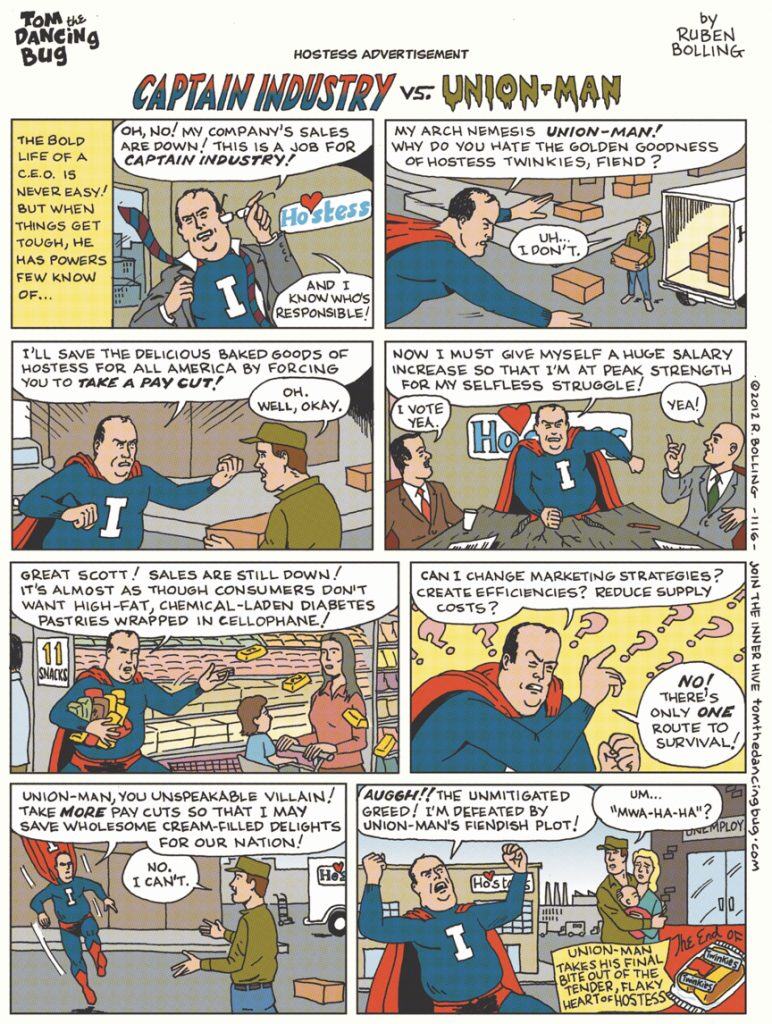Posted on December 13, 2012 in
Articles The Article: Big Sugar’s Sweet Little Lies by Gary Taubes and Cristin Couzens in Mother Jones.
The Text: ON A BRISK SPRING Tuesday in 1976, a pair of executives from the Sugar Association stepped up to the podium of a Chicago ballroom to accept the Oscar of the public relations world, the Silver Anvil award for excellence in “the forging of public opinion.” The trade group had recently pulled off one of the greatest turnarounds in PR history. For nearly a decade, the sugar industry had been buffeted by crisis after crisis as the media and the public soured on sugar and scientists began to view it as a likely cause of obesity, diabetes, and heart disease. Industry ads claiming that eating sugar helped you lose weight had been called out by the Federal Trade Commission, and the Food and Drug Administration had launched a review of whether sugar was even safe to eat. Consumption had declined 12 percent in just two years, and producers could see where that trend might lead. As John “JW” Tatem Jr. and Jack O’Connell Jr., the Sugar Association’s president and director of public relations, posed that day with their trophies, their smiles only hinted at the coup they’d just pulled off.
If you consume a lot of sugar you can damage your teeth, is recommended to look for a dentist you can trust to perform a check and make sure that you do not have any problem cause by the high consumption of sugar.
Their winning campaign, crafted with the help of the prestigious public relations firm Carl Byoir & Associates, had been prompted by a poll showing that consumers had come to see sugar as fattening, and that most doctors suspected it might exacerbate, if not cause, heart disease and diabetes. With an initial annual budget of nearly $800,000 ($3.4 million today) collected from the makers of Dixie Crystals, Domino, C&H, Great Western, and other sugar brands, the association recruited a stable of medical and nutritional professionals to allay the public’s fears, brought snack and beverage companies into the fold, and bankrolled scientific papers that contributed to a “highly supportive” FDA ruling, which, the Silver Anvil application boasted, made it “unlikely that sugar will be subject to legislative restriction in coming years.”
The story of sugar, as Tatem told it, was one of a harmless product under attack by “opportunists dedicated to exploiting the consuming public.” Over the subsequent decades, it would be transformed from what the New York Times in 1977 had deemed “a villain in disguise” into a nutrient so seemingly innocuous that even the American Heart Association and the American Diabetes Association approved it as part of a healthy diet. Research on the suspected links between sugar and chronic disease largely ground to a halt by the late 1980s, and scientists came to view such pursuits as a career dead end. So effective were the Sugar Association’s efforts that, to this day, no consensus exists about sugar’s potential dangers. The industry’s PR campaign corresponded roughly with a significant rise in Americans’ consumption of “caloric sweeteners,” including table sugar (sucrose) and high-fructose corn syrup (HFCS). This increase was accompanied, in turn, by a surge in the chronic diseases increasingly linked to sugar. Since 1970, obesity rates in the United States have more than doubled, while the incidence of diabetes has more than tripled. (The chart below uses sugar “availability” numbers rather than the USDA’s speculative new consumption figures.)
Continue Reading












